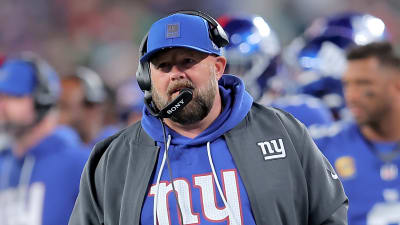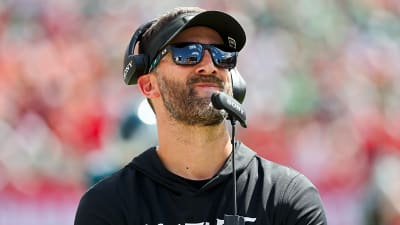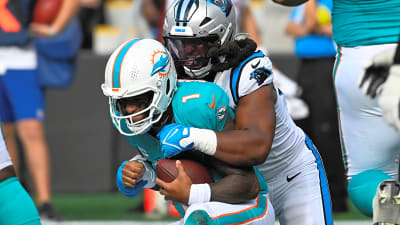
It’s no mystery as to why former Boston Herald writer and Brockton native Dave Wedge would want to write a book about Marvelous Marvin Hagler. Hagler was a fellow Brocktonian and a New England legend in the sport of boxing. Wedge, a NYT bestselling author whose book on the Boston Marathon bombing (Boston Strong: A City’s Triumph Over Tragedy) was later turned into Patriots Day, a film starring Mark Wahlberg and directed by Peter Berg, had been gestating on the project since Hagler was alive, and involved in the development of the story. Hagler died in 2021, leaving Wedge to soldier on alone.
The result of Wedge’s efforts is Blood & Hate: The Untold Story of Marvin Hagler’s Battle for Glory. Wedge’s book takes on Brockton’s legacy in boxing as well as Hagler’s. Brockton was the hometown of the fabled and undefeated heavyweight champion, who closed out his career with a 49-0 record. Hagler was the second legend to come from the hardscrabble, working-class city. As Wedge shared with me, “For me, it was Hagler. For my dad, it was Rocky. My dad was actually Rocky Marciano’s Paperboy. Wedge’s father took him to the Hagler/Antuofermo fight at the Boston Garden in 1980, which Hagler won by retiring the Italian-American, and former middleweight champion, in the fourth round.
In Blood & Hate, Wedge spends a significant amount of time on Marciano’s history and his ties to the Petronelli brothers, Goody and Pat. The Petronellis had a relationship with Marciano (they were going to go in on a gym together when Marciano’s plane crashed, killing him, in 1969), and later became the trainer and promoter of Hagler. They are the glue in Wedge’s book–the ties that bind.
Hagler became known as the fifth franchise in the Boston area, along with the Red Sox, Patriots, Celtics, and Bruins. Wedge’s book aims to reveal how Hagler reached such an exalted status. In doing so, Wedge focuses on Hagler’s “origin story,” as Wedge put it. That singular focus means that Wedge’s book focuses on Hagler’s early years in Newark and Brockton (both cities are characters of their own in Blood & Hate), his ascent from fledgling to contender, and finally, his winning of the middleweight title after 53 fights.
What Blood & Hate doesn’t do is cover Hagler’s championship years from 1980 to his controversial loss to Sugar Ray Leonard, and subsequent retirement from boxing, in 1987. There is nothing in the book, at least in any significant fashion, about Hagler/Leonard, Hagler/Duran, or Hagler/Hearns. Before I could ask Wedge about this choice, he intercepted me. Wedge is keenly aware of that concern and has received criticism in that regard. Wedge addressed that pushback with this pre-emptive retort:
There’s been plenty written about that (Hagler’s championship years). To me, it’s a story about Marvin rising up and winning this crazy, racially tense fight in England and becoming the champ and redeeming himself. That’s what I love. It’s a tight story. But there is a second act. In this story, Marvin wins, but he also loses because he gets run out of there (the ring), and bottles thrown at him. He doesn’t even get his belt in the ring. And again, I think, that has to be shared with the next generations. They need to understand how bad racism can get. It wasn’t that long ago. I think it’s an important lesson. I wanted to tell the story of that historical photo.
In that vein, Wedge’s book spends an unexpected amount of time on Hagler’s opponents, but none more so than the British middleweight Alan Minter, who wins the title, and whom Hagler comes across an ocean to fight in his own backyard. As the book moves forward, Minter and Hagler seem to be circling each other, on a collision course for the middleweight championship that Hagler so craved. Minter is a case study in his own right. British nationalism kicked in to an ugly degree before the fight. The racist, anti-immigrant group known as the National Front (they still exist today) saw the Minter/Hagler bout as an opportunity to prove racial superiority. While Wedge reveals that Minter never fully embraced the group, he did tacitly approve of their support. Even worse, before the fight, Minter declared that no black man could take his title. Those were words he would eventually eat.
As Hagler pounded Minter into a third-round TKO, many in the home crowd in Wembley Arena took leave of their senses, throwing bottles and cans into the ring, forcing Hagler’s team to encircle him and beat a hasty retreat out of the ring, before Hagler could accept his newly won belt. Wedge stated that He (Hagler) was as hungry as a fighter has ever been. He walked into one of the most hostile environments one could imagine, I would argue, the most hostile environment that’s ever happened in sports.
I asked Wedge about the parallels to racial issues today, in the U.S. and abroad, and he confirmed that while he didn’t intend to write a political book, the echoes are undeniable.
If you read those flyers that I put in the book, this is the exact language that is from MAGA, it’s Make Britain Great Again. That was literally one of their slogans. Get the immigrants out, the white replacement theory, that’s all in there. It’s the same language. The fact is, racists with bottles assaulted a man because he was black, and he beat their fighter on national TV, and it was a national disgrace. The fight industry in Britain they were disgusted by it, Wedge opined.
Still, the heart of the book is those hard years Marvin experienced in his youth, the over half a hundred fights he endured before winning his first title, and his initially begrudging, but eventually full embrace of the Petronellis. Hagler had few positive relationships with whites in Newark, and particularly with Italians. The Petronellis were both of those things. Over time, he and the Petronellis reached a level of trust that could not be broken. In a very dirty sport, the Petronellis were the cleanest of the clean. Hagler could have moved over to Don King’s stable and likely scored a title shot at a much earlier date, but King was not a man Hagler could trust. Despite temptations (that are revealed in Love & Hate), Hagler stuck with the Petronellis. They were men he could trust.
There’s also a remarkable section of the book that focuses on the Speaker of the House from Massachusetts, Tip O’Neill, and Mass Senator Teddy Kennedy pressuring Bob Arum into getting Hagler a title shot, under the threat of the formation of a congressional commission to look further into boxing as an entity. Pressure doesn’t just burst pipes; it also bursts fight promoters, and Arum gave in.
Blood & Hate is the story of a young man from fraught beginnings who took on the toughest of sports, who carried a massive chip on his shoulder, who was ducked by prominent fighters because of what Joe Frazier once told him: Son, you got three things going against you. You’re black, you’re a southpaw, and you’re good.
Hagler took the hard road to glory, with a lunchpail in his hand. He wasn’t loquacious like Muhammad Ali, and he wasn’t pretty like Ray Leonard. But he was great. So great that despite his extraordinary accomplishments, he is the boxing equivalent of Hank Aaron: an athlete who was undeniably, and accepted as, great, but who is somehow still underrated. Wedge’s book intends to illuminate Hagler’s early years and his far-too-slow walk to greatness.
(Editor’s Note: Wedge is currently talking to Sam Rockwell about a film version of the book. Blood & Hate: The Untold Story of Marvin Hagler’s Battle for Glory by Dave Wedge is available now in hardcover on Amazon and in bookstores.)
More must-reads:
- Oklahoma provides John Mateer injury update ahead of Red River Rivalry
- Heat’s Erik Spoelstra expected to replace Steve Kerr as Team USA head coach
- The '100-rushing-yard games by NFL QBs' quiz
Breaking News
Trending News
Customize Your Newsletter
 +
+
Get the latest news and rumors, customized to your favorite sports and teams. Emailed daily. Always free!








